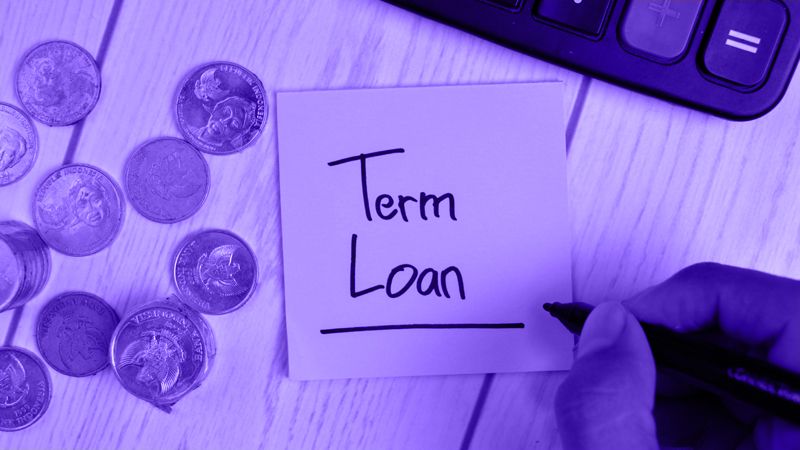When choosing between a secured loan or remortgaging, your financial situation will determine which is best for you.
Since both secured loans and remortgages are secured against your property, there is a risk of repossession in both types of loans if you struggle with payments.
So, whether you get a secured loan or remortgage, you first need to be sure that you can afford it – that’s the first step.
The second step is understanding your needs so that you can select a finance package best suited to them.
Secured loans vs remortgaging
In the case of remortgaging, the basic idea is that you are replacing an existing mortgage with a new one.
You can choose to remain with your present mortgage provider or switch to a different one.
Why would homeowners want to do this? It may be for the following reasons:
- Their initial mortgage offer has been terminated.
- They found a better deal with more competitive rates and flexible terms.
- They need more funds against their property (perhaps for debt consolidation or home improvements).
On the other hand, when you get a secured loan, you borrow extra money and do not replace your mortgage. People take secured loans for the following reasons:
- Consolidating debts.
- Home improvements.
Compared to mortgages, secured loans are riskier (from the lender’s view), so they also come with higher interest rates.
However, remortgaging might cost you more interest in the long run since repayments are sometimes spread over a longer time. This means that remortgaging might be a longer and more costly way to pay off your loan.
The loan is secured against your property in both cases, so you could risk repossessing your home if you don’t maintain your repayments.
When are secured loans better than remortgaging?
A secured loan can be better than remortgaging in the following cases:
- When you are struggling to show proof of your income. Maybe you have recently gone self-employed and cannot obtain a mortgage because those lenders require proof of income. In this case, a secured loan may be easier to find.
- When you want the money fast. Generally, waiting time from application to cash in hand is much quicker in a secured loan than in a mortgage.
- When you have a bad credit score that mortgage lenders don’t like. With secured lending, lenders allow a much broader range of credit scores. However, some lenders focus on bad credit loans.
When are secured loans cheaper than remortgaging?
If you want to make a well-informed decision, it’s essential to calculate the costs attached to the different types of loans. For example, a secured loan can be less costly than remortgaging in some cases.
For instance, an early repayment fee could be payable if you remortgage before your current agreement terminates. Your mortgage lender will be able to let you know how much they would charge if you choose to remortgage early.
Confirm that this fee won’t surmount the money you can save by changing to a lower interest rate. You’re better off waiting for your agreement to terminate before you remortgage if it will cost you more.
It might be hard to remortgage if your credit score has dropped since you took out your mortgage.
Furthermore, you might face higher interest rates. The most competitive rates are reserved for those with the best credit scores, and lenders could be more hesitant to lend to bad credit.
As a result, it will be easier to find a secured loan than a mortgage if you have poor credit. Also, you would only pay a higher rate of interest on the extra money you borrow, not the entire mortgage.
So, the terms of your current mortgage would stay the same, and you simply pay the secured loan on top.
Keep in mind that you might be paying more interest in the long run by remortgaging since payments are spread over a longer period.
Related quick help guides:
- Secured loans brokers.
- Secured loans for pensioners.
- Secured loans for self employed.
- Interest only secured loans.
- Can I get a secured loan on a buy to let property?
- Secured business loans.
Will a secured loan affect remortgaging?
If you have a secured loan, you can still remortgage. But your eligibility for a remortgage depends on your financial situation and the lender’s standards. So they will first analyse your condition to be sure that you can make the repayments in time.
You can choose to remortgage for a larger sum to completely pay off the secured loan. Alternatively, you can switch to a new mortgage and keep making monthly payments to your mortgage separately.
If you currently have a mortgage and seek to take out a secured loan, you can choose from a few options.
You can apply for a further advance from your present mortgage lender if you hold sufficient equity in your home. However, your monthly payments will be raised to account for this loan.
Second charge loans are secured loans held separately from your mortgage. You will make two sets of monthly payments secured against your home.
For example, your mortgage is cleared first if you sell your home, and your secured loan is cleared second.
How much can I borrow?
The amount you can borrow depends on several factors, including:
- Your situation.
- The lender’s criteria.
- The value of your property.
- How much equity you have (equity is the sum you have left after deducting your outstanding mortgage from the value of your house).
You can expect to go through affordability checks. Lenders perform these because they want assurance that you can afford the repayments, even if situations change and interest rates increase or if your income decreases.
Secured loans commonly start at £10,000. However, you can borrow more with a secured loan than a personal loan because the lenders have the security of your property as collateral.
As a result, they can take over your property and sell it off to reclaim funds if you default on the loan.
Mortgage lenders can offer roughly four times your annual earnings.
However, keep in mind that you don’t have to accept the offered amount. Instead, determine whether you can afford to repay the loan and don’t get yourself in a financial dilemma.
Things to consider before taking out a secured loan
- Determine how much you need to loan and for how long.
- Find out how much you can afford to pay monthly for the entire term of the deal.
- Compare different loans to find the best deal, including fees, interest, and charges.
- If you are loaning to consolidate debts, estimate whether it will cost you more by spreading the payments.
- See if you can improve your credit score and get your application accepted at the best rate.
- Don’t create many applications at once, which will give the impression that you are struggling financially and risk not being accepted.
- Use an eligibility checker to determine the likelihood of getting accepted before applying.
Things to consider before remortgaging
- Determine how much you need to loan and for how long.
- Find out how much you can afford to pay monthly for the entire term of the deal.
- Weigh the cost of remortgaging against your current mortgage or a secured loan, including interest and early repayment charges.
- If you are loaning to consolidate debts, estimate whether it will cost you more by spreading the payments.
- See if you can improve your credit score and get your application accepted at the best rate.
- Refrain from applying for credit in the months leading up to your remortgage application. It will give the impression that you are struggling financially and risk not being accepted.
- Use an eligibility checker to determine the likelihood of getting accepted before applying.
- Study comparison, or you might also want to speak to a financial advisor who can understand your case and find you the best deal.
Should you get a secured loan or remortgage?
Give Loanable a call today on 01925 988 055 and they will provide you with the best deals available to meet your circumstances and consider any credit history you may have. With their expert advice, they can guide you through the process and give you the knowledge and confidence it takes to acquire a secured loan that is right for you.
If you have read all the information on secured loans carefully and feel that you want to proceed with a secure loan, get in touch with one of Loanable’s secured loan experts by emailing hello@loanable.co.uk who can work with you to find the best deal for your needs and circumstances.

















